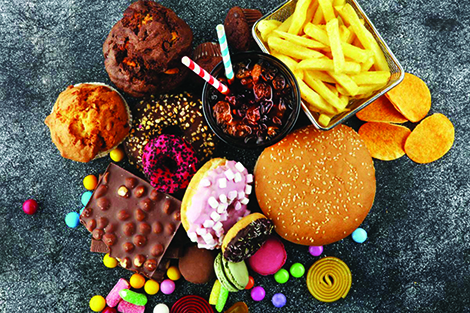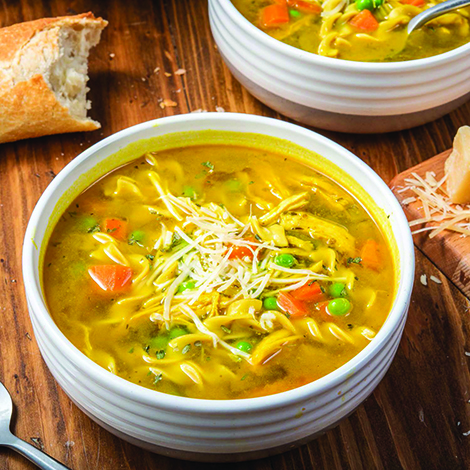Avoid junk food like your health depends on it (which it does)
Sure, most people know what a healthy diet looks like. But truth be told, they don’t all follow it, leading to a myriad of health problems. Junk food, fast food, and highly processed items may be convenient and taste good, but they aren’t good for the body.
According to the national Centers for Disease Control and Prevention (CDC), the percentage of the adult population considered obese continues to rise. The latest figures show that 42 percent are obese, and obesity increases the risks of heart disease, stroke, type 2 diabetes, and certain types of cancer—all of which, the CDC points out, are largely preventable through diet and lifestyle.
Here are some expert tips a healthier diet:
- Eat five or six small meals per day and aim for half your plate to be fruits and vegetables.
- Consume no more than 2,000 mg per day of sodium. Purchase canned goods with no salt added, and cook without adding salt. Salt can be added at the table, but it can’t be removed once it’s an ingredient in the cooking.
- Don’t drink your calories. Eliminate empty calories in sugar-sweetened beverages, coffee, and fruit juices.
- Focus on fiber. Try for at least 25 grams per day for women and 38 grams for men. Great sources of fiber include oatmeal, beans, lentils, popcorn, and whole-grain bread.
- Power up with protein by getting 0.8 grams per kilogram body weight. Consuming adequate protein is good for bone health, retaining muscle mass, and reducing cravings by keeping you full. Great protein sources include lean meat, poultry, eggs, seafood, beans, tofu, peas, lentils, nuts, and seeds.
- Increase daily fruit and vegetable intake. They should be a staple because they contain fiber, antioxidants, and phytonutrients. The CDC reports only 9 percent and 12 percent of adults, respectively, eat the recommended daily supply of vegetables and fruit.
- Limit your eating of highly processed food. Most of them have unhealthy ingredients. The National Institutes of Health reports people who eat the stuff consume more calories and gain more weight. Make snacks at home, so there’s more control over what goes into them.
In general, to get in the habit of eating healthier, make a list of planned meals and shop only for the ingredients needed to make them. And avoid grocery shopping while hungry.
Sources: Centers for Disease Control and Prevention (cdc.gov) and National Institutes of Health (nih.gov).



